The average American uses a staggering 141 rolls of toilet paper every year, or roughly 12.7 kilograms of bathroom tissue. There’s no time like the present to switch to a more sustainable toilet paper brand, or install a bidet!
Table of Contents
Below, you can peruse my musings on how to choose more sustainable bathroom tissue and what we can all learn from the French about eco-friendly ablutions. Following that, you’ll find my top choices for plastic-free, eco-friendly toilet paper.
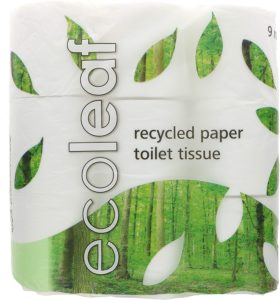
Best 100% recycled, chlorine and plastic-free toilet paper
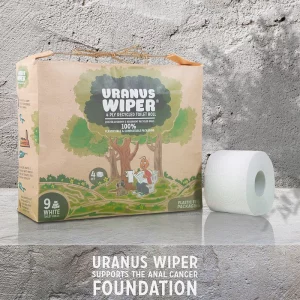
Sustainable toilet paper runner up
Certifications to look for
The majority of toilet tissue is still made using virgin wood pulp from clear-cut forests. This is absolutely devastating for the worldwide ecosystem, biodiversity, carbon sequestration, and climate change. FSC certification is certainly an improvement on uncontrolled clearcutting, but most FSC certified products still rely on virgin wood.
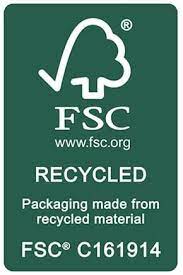
To make more sustainable choices for toilet paper, you’ll want to get to know three FSC certifications:
- 100% FSC – From well-managed forests
- FSC RECYCLED – Made from recycled material
- FSC MIX – From responsible sources.
For more sustainable toilet paper, look for the FSC RECYCLED logo. This type of toilet tissue comprises solely wood from pre-or post-consumer waste. Ideally, most of this would be post-consumer waste (which has a much lower environmental impact than virgin wood and pre-consumer waste). Post-consumer waste is typically paper waste that would otherwise end up in landfills.
Why recycled toilet paper is best
- Bleach is a common component of toilet tissue manufacturing.
- Manufacturers use bleach to whiten, soften, and strengthen toilet paper, but it’s totally unnecessary.
- Most manufacturers used to use elemental chlorine bleach in pulp and paper production. This kind of chlorine produces byproducts that are among some of the worst offending synthetic chemicals.
- These include carcinogenic dioxins that also harm aquatic ecosystems.
- Thankfully, the level of BPA in paper is already quite low and in recycled paper is even lower – far lower than BPA exposure from food packaging.
- Virgin paper products require the use of far more chemical inputs than recycled paper. So, if you’re concerned about dioxins and the environment, it’s almost always better to choose recycled toilet tissue over virgin paper.
- For top marks, choose a brand that only makes unbleached, undyed toilet tissue or only uses TCF processes.
The best eco-friendly toilet paper

Ecoleaf By Suma Ecoleaf Toilet Tissue Bulkpack
Highlights: 100% recycled content, chlorine-free, wrapped in compostable bioplastic and made by a longstanding, well-regarded UK co-operative.
Suma is a UK co-operative established in 1977. It offers a range of household products and grocery items including arguably the most eco-friendly toilet paper around. Suma uses 100% recycled paper sourced in the UK as a mix of consumer and trade paper waste.
Suma produces Ecoleaf toilet tissue without chlorine or other potentially toxic chemicals. it offers good value for money and each case has an outer wrap consisting of bioplast 300 potato starch. You can compost the outer wrapper at home.
The vegetarian, wholefood, organic oriented cooperative partners with Treesponsibility to minimize its environmental impact. Suma has an excellent reputation for ethical supply chains and labor rights and complies with the Ethical Trading Initiative Base Code for anti-slavery. The company is also very careful to avoid GMOs in products and packaging.

Uranus Wipes
Highlights: Highlight: Quilted 4-ply toilet tissue made with 100% recycled paper in the UK without chlorine, and shipped carbon neutral and free to the US.
Made in Europe but free to ship to the US, Uranus Wiper is a 4-ply toilet tissue. It is 100% recycled, comprising 75% post-consumer waste paper and 25% pre-consumer waste paper. The paper is BPA-free, and made without chlorine or inks.
This toilet tissue comes in an eco-friendly kraft bag that is plastic-free and easy to carry. The paper is quilted, thick, soft, strong, lint-free, and septic system safe. The roll is a little smaller than standard North American rolls, but it is still good value for money and is thicker than many recycled options in the US.
Uranus Wipes donates a penny (UK Sterling) to the Anal Cancer Foundation for every pack sold. The company also has an integrated automatic carbon emissions offset for deliveries, making every delivery carbon neutral. This is through Shopify and Pachama, with offsets directly invested in the Acapa – Bajo Mira y Frontera Forest Conservation Project. This project is certified by Verra/VCS and is anticipated to prevent over 15 million tons of CO2 that would have otherwise been emitted.
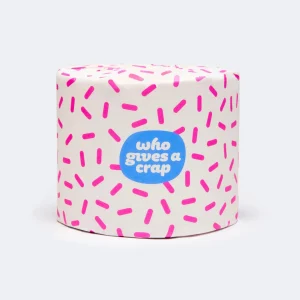
Who Gives a Crap 100% Recycled Toilet Paper
Highlights: Cute brand of toilet tissue comprising 100% recycled paper. Made by a B Corp that donates 50% of profits to improve sanitation worldwide and offers carbon neutral shipping.
Who Gives a Crap is an Australian company founded in 2013. It makes two types of toilet tissue, one from bamboo and one using 100% recycled paper. While the bamboo option is more eco-friendly than virgin wood pulp, the recycled option is much more sustainable overall. The company sources the paper close to its production facilities, including from schools and offices.
This 3-ply paper is soft and comfortable. Because it is a bulkier roll than standard, the value per sheet is really rather good. WGaC uses vegetable inks and paper and you can recycle or compost all packaging, including the central cardboard roll.
Who Gives a Crap is a certified Benefit Corporation (B Corp), meaning it has some solid social and environmental ethics. It has bases in the UK and USA and manufactures the paper in China. The company is actively looking to manufacture in other locations to make its supply chains even more efficient and sustainable. The company offers carbon neutral shipping.
As with many of these eco-friendly toilet tissue options, you can subscribe to WGaC or buy a one-off pack to try. Many zero-waste stores also carry this brand in single rolls, meaning you can try before committing to a case.
There has been some grumbling online about the fact that WGaC wraps each roll individually. WGaC does this to keep the rolls moisture-free and hygienic. The company’s argument is that it takes effectively the same amount of paper to wrap six rolls individually in thin paper as it does to wrap all six in a thicker, stronger paper.
This pack includes 48 double length rolls with approximately 400 sheets per 3-ply roll. The sheets are 10 cm by 10 cm and are suitable for most septic tanks.
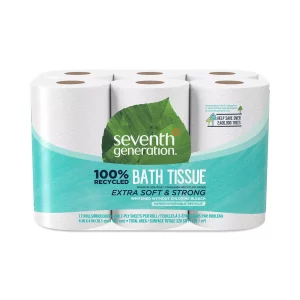
Seventh Generation Recycled Bath Tissue 2 Ply
Highlights: Two-ply toilet paper made in the US and Canada by a certified B Corporation with FSC 100% recycled content from North America, processed without chlorine. Wrapped in plastic.
Seventh Generation is a certified B Corp offering fully recycled toilet tissue. The paper is fairly soft but not luxury soft and it is quite thin overall. It is fragrance-free and free of dyes and color additives and comprises at least 50% post-consumer content. The paper provides 240 sheets per roll and carries FSC certification.
Seventh Generation makes its products in Wiscconsin and Arizona, USA, and Quebec, Canada, using materials recycled in North America. It is safe for septic systems, RVs, and low-flush toilets.
Seventh Generation tests its paper products for BPA and recently found trace levels due to more sensitive testing methods. Still, this was at the level of parts per billion level, which is unlikely to affect health. Seventh Generation notes that this issue is the same for all recycled paper products. Arguably, Seventh Generation just tests more rigorously and is transparent enough to acknowledge the presence of trace amounts.
Seventh Generation also tests for heavy metals, pesticides, phthalates, PCBs, phenols, PAHs, dioxins, and furans. The testing is based on FDA guidance for calculating potential exposure and California guidance for complying with Proposition 65. Its paper passes a slew of tests and meets the CONEG, Toxics in Packaging Prevention Act.
Unfortunately, Seventh Generation wraps its toilet tissue in plastic.
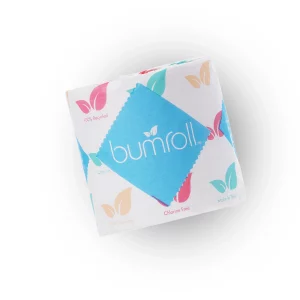
Bumroll – Bulk Toilet Paper 100% Recycled
Highlights: Fully recycled, chlorine-free, eco-friendly toilet tissue made in the US by a company that donates to a reforestation project.
Septic-safe, RV-safe, unscented, and 100% recycled, Bumroll toilet paper is an excellent eco-friendly, plastic-free choice for bathroom tissue. Bumroll whitens the paper with hydrogen peroxide instead of chlorine and each roll boasts 400 two-ply, 4 by 4 inch sheets.
Bumroll makes its toilet tissue in California with inclusive manufacturing jobs. It is BPA-free, fragrance-free, and free of dyes and parabens. It is Rainforest Alliance certified and the company donates 2% of profits to the National Forest Foundation’s “50 Million for our Forests” campaign.
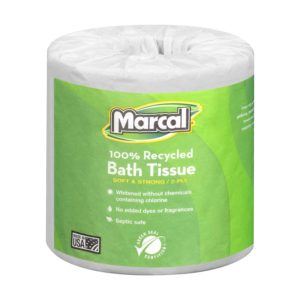
Marcal Toilet Paper 100% Recycled
Highlights: Great value, bulk buy 100% recycled 2-ply toilet tissue made without chlorine bleach, dye, or fragrances.
Marcal doesn’t have as fancy marketing as some other toilet tissue companies, and it’s not super thick, but this 2-ply bathroom tissue gets the job done and is just as eco-friendly. Marcal makes the toilet tissue in the US and it is Green Seal Certified. It comprises 100% recycled paper with 60% post-consumer content, making it more sustainable than paper with a higher ratio of pre-consumer recycled content.
Each roll boasts 336 sheets measuring 4.2 inches by 3.6 inches. The paper is septic-safe, virtually lint-free, and is soft and absorbent with perforations and embossed sheets.
The paper comes in a cost-effective, plastic-free cardboard box of 48 rolls. The rolls are individually paper wrapped for hygiene. This makes Marcal a good option for offices, workspaces, and for guest houses or even camping. Contact the company to request plastic-free delivery though as some third-party retailers may sheathe it in plastic for no good reason.
Marcal has been around since 1932 and is now owned by a larger company based in Greenwich, Connecticut. Marcal began developing wastepaper recycling technology back in the 1950s and is one of the longest standing innovators in the industry.
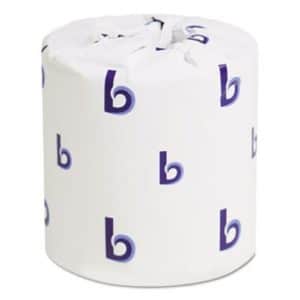
Boardwalk Standard
Highlights: Seemingly chlorine-free, two-ply tissue made with 100% recycled fibers including a high ratio of post-consumer paper waste.
It’s not fancy, but Boardwalk Standard is a good choice for sustainable toilet paper. This two-ply tissue comprises 65% post-consumer waste and 35% pre-consumer waste. This is a pretty high ratio, making it more eco-friendly overall. Each roll provides 500 sheets measuring 3 by 4 inches and has its own wrapper.
The affordable, embossed rolls are a good option for workplaces, schools, offices, and at home. Check with the company to ensure plastic-free shipping as some listings show cardboard packaging while others show plastic wrap. It appears that Boardwalk whitens its toilet tissue without chlorine. However, not all product listings state this clearly, so check before ordering in bulk.
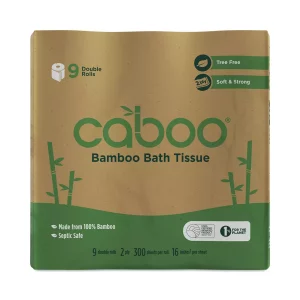
Caboo Bamboo Bathroom Tissue
Highlights: Sugarcane pulp and bamboo 2-ply toilet paper that is chlorine-free, septic-safe and wrapped in paper.
Caboo toilet tissue comprises bamboo and leftover sugarcane pulp. It is soft, strong, and safe for septic systems. Each roll has 300 sheets of 2-ply tissue and comes with a paper wrapper. You can recycle the bioplastic wrapper with regular soft plastics. The tissue is chlorine-free, BPA-free, fragrance-free, dye- and color additive-free, and FSC certified.
Caboo works with the U.S. Forest service to plant a tree for every pound of tissue paper sold. The company also works with factories in China that pass third-party audits for safety and workers’ rights.
The sugarcane residue Caboo uses is known as “bagasse” and is the dry fibrous residue remaining after the extraction of juice from the crushed stalks. Bagasse is usually burned or otherwise treated as trash.
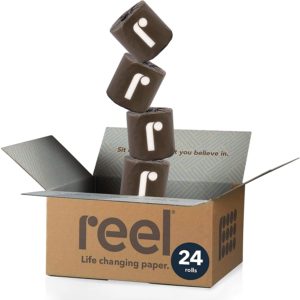
Reel Premium Bamboo Toilet Paper
Highlights: Soft, strong, and plastic-free, 3-ply bamboo toilet paper in a bulk pack.
Reel makes one of the more eco-friendly bamboo toilet paper options. Its 3-ply, 100% bamboo toilet tissue is packed in paper, delivered in a cardboard box, using plastic-free tape. Each pack contains 24 rolls that are individually wrapped for freshness.
This toilet tissue is tree-free, fragrance-free, and made without inks or dyes. The paper is made in China using bamboo grown nearby.
Unfortunately, the company uses a elemental chlorine-free (ECF) whitening, rather than a totally chlorine-free process. The paper is also pretty thick, meaning it may clog pipes and upset septic systems, RV plumbing, and low-flush systems.
The bottom line
Sorry, I couldn’t resist one final pun.
Seriously, though, toilet paper is one of those daily use items we tend to overlook during an eco-lifestyle makeover. It’s not hard to make more sustainable choices though, even if you don’t want to install a bidet or bum gun, or switch to zero-waste bathroom wipes just yet.
In short: Choose FSC RECYCLED paper whenever you can, buy in bulk to reduce any plastic packaging, and don’t get bamboozled by greenwashing about bamboo, chlorine, and BPA.